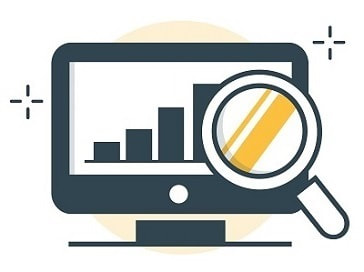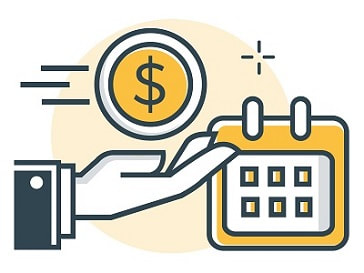Business Borrowing Options - Funding Your Business in 2024
Our guide looks at the pros, cons and costs of Business Loans, Government Grants, Alternative Finance, Crowdfunding, Invoice Financing and Personal Loans.
Updated 20 July 2024
Summary
Our guide covers the following:
Useful resources:
- One of the most common pathways for many New Zealand businesses is obtaining business financing through borrowing.
- With the Official Cash Rate (OCR) higher now than in recent years, and worries of a recession reported regularly by the media, many business owners are wondering whether they should continue to fund their businesses through borrowing.
- Borrowing money to fund your business in New Zealand is a common and necessary step for many New Zealand entrepreneurs. However, business owners need to be aware of a number of pitfalls before they take on debt they may not be able to pay back. However, with the right approach and understanding of the options available, you can secure the capital you need from the right place to help your business thrive and expand.
- This guide explains why you would want to borrow money to fund a business, when a business should consider funding their business through debt, an outline the main sources of business borrowing and the pros and cons of each. We also explain the top facts you need to know and the most frequently asked questions concerning business borrowing.
- Our guide focuses on established businesses. If you're a newly launched business, obtaining funding can be challenging without a track record or established credit history. However, there are several options available for entrepreneurs in New Zealand looking to borrow money to fund their businesses.
- Know This: The best option for funding your business will depend on your needs, financial situation, and creditworthiness. By researching the options available and considering the pros and cons of each, you can make an informed decision and secure the capital you need to grow your business successfully.
- While borrowing money to fund your business can make sense in some situations, it won't for many others. Therefore it's essential to fully understand the ramifications of taking on debt before applying to borrow any money.
Our guide covers the following:
- Why Would I Want to Borrow Money to Fund My Business?
- Important Considerations Before Borrowing Money to Fund a Business
- Business Borrowing Key Risks
- Main Sources of Business Borrowing - Bank loans, Government funding, Crowdfunding, Invoice financing and Personal loans
- Funding Your Business Through Borrowing - Must-Know Facts
- Frequently Asked Questions
Useful resources:
- Do you want to apply for a loan? Our business loan comparison has the latest offers.
- Are you looking for alternatives to loans? Our guides to finance leases and operating leases explain your options.
- If you're looking to improve cash flow, our guides to getting overdue debtors to pay your invoices and tips for reducing business costs are popular resources.
MoneyHub Founder Christopher Walsh shares his views on business borrowing:
|
"Every business is different, and many banks have continued to deny many loan applications. I am frustrated with banks who refrain (under somewhat of a national policy) from lending to businesses, thus indirectly limiting New Zealand's economic growth.
The MoneyHub research team continuously updates this guide to explain all the borrowing options lenders won't tell you and present the available best lending offers. We are honest about the pros and cons and are realistic when we say borrowing is not always the best option for a business. If you decide to borrow, making business loan applications can be frustrating - many lenders are not interested in understanding your business and push back, ask for too many things that are arguably irrelevant, or just give an outright no. Don't let that put you off - we list lenders on this guide that are actively assessing loan applications and fully committed to business lending". |
MoneyHub Founder
Christopher Walsh |
Why Would I Want to Borrow Money to Fund My Business?
There are several reasons why a business owner might consider borrowing money to fund their business. Just as New Zealanders use credit cards and personal loans in their personal lives to alleviate day-to-day expenses and make ends meet, businesses will do the same. Some common reasons that businesses borrow money include:
1. To finance the expansion of the business.
- When a business is profitable and does well, it's natural to try and expand or grow to capture as much market share as possible. Whether it's a local pub doing well or an e-commerce store that's experienced accelerated growth, borrowing money can allow a business to invest in new equipment, hire additional staff, or develop new products to expand into new markets.
- Generally, a business may not have the spare cash or capital in the bank account to fund this bold expansion. Debt can be a much faster way to tackle a new market or develop a new product without waiting for the core business to generate enough profit to undertake these abilities.
2. To cover general operating expenses.
- During tough times, businesses can get stressed and may need to borrow money to cover their day-to-day operating expenses, such as rent, utilities, inventory payments and payroll.
- While this isn't ideal and not a long-term solution (similar to how borrowing a credit card to pay for food isn't a viable long-term strategy), it can provide a much less harsh option if the alternative is liquidation or receivership.
- Generally, if a business's cash flow is insufficient to meet its financial obligations, borrowing money to cover general operating expenses in the short term can help improve cash flow and bridge the gap until the business can generate more revenue (ideally, profit).
3. To cover unexpected expenses.
- Some businesses, especially those that deal with heavy physical assets, may encounter instances where borrowing money can provide a short-term solution for businesses that experience unexpected expenses, such as a natural disaster or equipment failure.
4. To take advantage of opportunities and capture market share.
- When a market or industry develops fast, competitors can race to try and capture as much market share as possible.
- Borrowing money can allow a business to seize new opportunities, such as acquiring a competitor, expanding offshore or investing in a new product line.
|
If you're looking for a business loan or line of credit, choosing a lender that offers competitive rates, fair terms and wants to lend is essential. In our search for such lenders, one name that stands out is Prospa.
Prospa: A Practical Choice for Business Borrowers Our business loan research indicates that Prospa often offers lower interest rates and fees than many traditional lenders, helping businesses manage costs effectively. We have seen it become popular with many MoneyHub users who are business owners. Straightforward Application Process Applying with Prospa is simple and takes just a few minutes. There's no commitment required when you apply, so you're free to consider your options without any pressure. Why Comparing Rates Matters We always suggest business owners compare different loan offers. Applying with Prospa is free, and by comparing, you increase your chances of finding a loan that suits your business's needs and budget. Long-Term Impact of Your Interest Rate The interest rate on your loan will influence your repayments over time. Considering how this will affect your business finances in the long run is important. Our Advertising Transparency MoneyHub may receive a referral commission, but this does not influence our recommendations. Our priority is to provide reliable and unbiased information. Interest rates and assessment times can vary based on your circumstances. Get Started Visit Prospa to explore their offerings and see if they meet your business lending needs. Remember, making an informed choice will almost always make a big difference to your business's financial future. |
Christopher Walsh
MoneyHub Founder |
Important Considerations Before Borrowing Money to Fund a Business
There are various considerations to make before borrowing money, including:
Generally, a business loan can be a good option if:
Useful resources:
- Do you have a clear need or requirement for the funds? Business borrowing is expensive and the money you draw down must provide a positive return on investment. Unless the money you're borrowing is strategically used, it could be a liability that causes financial problems later on.
- Can you meet the debt repayments (even during tough months or during tax time) and can you pay it back on time? Fees and penalties may apply if you miss payments which can be expensive and a distraction when you're running a business.
- Do you fully understand the key terms and conditions of the debt? If you don't understand something, you'll need to ask your lender and make sure they explain it to your satisfaction.
- What the interest rate being charged is, and is it affordable? Business lending is, in many cases, expensive - a $100,000 loan at 15% p.a. for one year costs around $300 a week in interest payments and around $2,000 in principal repayments. Can your business generate enough cash to make the repayments?
- What are your alternatives if you didn’t choose to borrow money? This is a critically important question and one that needs full consideration. If you don't borrow, what are your options? Are the benefits worth taking on debt?
Generally, a business loan can be a good option if:
- You'll use the money to grow or cover short-term cash needs, and
- You can consistently make debt repayments without any issues, and
- You can pay it off early if necessary (but only if it makes sense), and
- You fully understand the key loan terms and consequences if you default on the loan payments.
Useful resources:
- Do you want to apply for a loan? Our business loan comparison has the latest offers.
- Are you looking for alternatives to loans? Our guides to finance leases and operating leases explain your options.
- If you're looking to improve cash flow, our guides to getting overdue debtors to pay your invoices and tips for reducing business costs are popular resources.
Business Borrowing Key Risks
When considering borrowing money to fund your business, it is important to know the potential risks involved. Here are some key risks to consider:
Know This: It’s important to carefully consider these risks before borrowing money to fund your business. Make sure to fully understand the terms and conditions of the loan, including the interest rate, repayment schedule, and any collateral requirements. It may also be helpful to consult with an accountant to assess the potential impact on your business's financial health.
- Interest rate risk: The interest rate on your loan can impact your business's financial health. If interest rates rise, your monthly payments may also increase, which can strain your business's finances. On the other hand, if interest rates decrease, you might be able to refinance your business loan at a lower rate, potentially saving your business money.
- Repayment risk: If your business cannot make its loan payments on time, it could lead to default and potential legal action. This default can be especially risky if you have guaranteed the loan, as it could put your assets (such as a home) at risk.
- Collateral risk: If you are required to provide collateral for your loans, such as equipment or a home, you may risk losing those assets if you default on the loan. Per this Stuff.co.nz article from 2016, unlimited guarantees can hang around for years - in one case, a man found himself responsible for paying business debts thanks to a personal guarantee he had signed 10 years' before. He believed once the original debt was cleared, the guarantee would be discharged. It hadn't been, and it was the subsequent debts he ended up liable for. If you're signing something, make sure you know what it covers.
- Debt-to-income ratio risk: Borrowing money can increase your business's debt-to-income ratio, which is the amount of debt you have relative to your income. A high debt-to-income ratio can make it more difficult to secure more financing in the future. This can force you into higher-interest lenders which can be unaffordable.
- Credit score risk: If you default on a loan, it can negatively impact your business's credit score. A low credit score can make it more difficult and costly to borrow money in the future.
- Opportunity cost risk: Borrowing money can tie up your business's cash flow and limit your ability to invest in other opportunities. This limit can also put you at a disadvantage if you need to make a quick decision on a new opportunity but are unable to because of your current financial obligations.
- Economic downturn risk: If your business borrows money during an economic downturn, it may be more difficult to make loan payments if it experiences a slowdown or financial hardship.
Know This: It’s important to carefully consider these risks before borrowing money to fund your business. Make sure to fully understand the terms and conditions of the loan, including the interest rate, repayment schedule, and any collateral requirements. It may also be helpful to consult with an accountant to assess the potential impact on your business's financial health.
Main Sources of Business Borrowing
There are many banks and financial institutions that offer loans and other forms of financing for small businesses. The most popular banks that provide business lending are the big four banks in New Zealand (Westpac, ANZ, ASB and BNZ) alongside Kiwibank (as a government-owned entity).
The most popular forms of business borrowing are:
The most popular forms of business borrowing are:
- Bank loans
- Government funding
- Crowdfunding (through convertible debt that turns into equity)
- Invoice financing (borrowing through suppliers)
- Personal loans
1. Bank loans
One of the most common ways to borrow money to fund a business in New Zealand is through a bank loan. Banks offer a range of loan products, including secured and unsecured loans, business term loans, and business overdrafts, as well as term loans, overdraft accounts, and revolving lines of credit. A few of these definitions are defined below:
Know This: To qualify for a bank loan, a business must provide financial information, including balance sheets, profit and loss statements, and cash flow projections. The bank will also assess the creditworthiness of the business and its owners, as well as the viability of the business plan. Interest rates on bank loans in New Zealand are typically based on the OCR set by the Reserve Bank of New Zealand (RBNZ), plus a flat margin determined by each bank.
To apply for a bank loan, you’ll need to provide detailed information about your business, including your financial history, business plan, and projections. Banks will also assess your creditworthiness, which will be based on your credit score and financial history.
Pros of bank loans:
Cons of bank loans:
- Secured loans are secured against an asset, such as property or equipment, while unsecured loans are not. As a result, secured loans typically have lower interest rates than unsecured loans, but the downside is that if you default on the loan, the bank can seize the asset used as collateral.
- Business loans are typically used for one-time large purchases, such as property or equipment. They have a fixed repayment period and interest rate and can be secured or unsecured, repaid by fixed monthly payments.
- Business overdrafts are a flexible form of borrowing that allows you to withdraw more money than you have in your account up to a pre-agreed limit. They can be useful for managing cash flow but typically have high-interest rates and fees.
- A revolving line of credit is a flexible loan option that allows a business to borrow money up to a certain limit and repay it on an ongoing basis.
Know This: To qualify for a bank loan, a business must provide financial information, including balance sheets, profit and loss statements, and cash flow projections. The bank will also assess the creditworthiness of the business and its owners, as well as the viability of the business plan. Interest rates on bank loans in New Zealand are typically based on the OCR set by the Reserve Bank of New Zealand (RBNZ), plus a flat margin determined by each bank.
To apply for a bank loan, you’ll need to provide detailed information about your business, including your financial history, business plan, and projections. Banks will also assess your creditworthiness, which will be based on your credit score and financial history.
Pros of bank loans:
- Banks offer a range of loan products, so you can find one that suits your business needs.
- Secured loans typically have lower interest rates than unsecured loans.
- Business term loans can be useful for one-time large purchases.
- Overdrafts can help with managing cash flow.
- The big four New Zealand banks are set up to support New Zealand businesses, meaning the process will likely be tried and tested.
Cons of bank loans:
- The application process can be time-consuming and require detailed information about your business.
- Your creditworthiness will be assessed, and if it’s not strong, you may not be able to secure a loan.
- Secured loans risk losing the asset used as collateral if you default.
- Overdrafts typically have high-interest rates and fees.
2. Government Funding
Another option for borrowing money to fund your New Zealand business is government funding. The New Zealand government offers a range of funding programmes and initiatives to support businesses, including grants, loans, and equity investments.
Some of these loan and grant programs for businesses include the Regional Business Partner Network provides businesses with access to expertise, training, and funding to help them grow and innovate.
Government grants and loans in a nutshell:
Grants vs Loans vs Equity Investments
How to Apply:
Pros of government funding:
Cons of government funding:
More information: You can find a range of funding options listed on the New Zealand Growth Capital Partners website. We have shortlisted those most relevant to small businesses:
Government Grants
Government Incubator Programmes
Government Business Funding
Some of these loan and grant programs for businesses include the Regional Business Partner Network provides businesses with access to expertise, training, and funding to help them grow and innovate.
Government grants and loans in a nutshell:
- While reserved for special cases and difficult to obtain for most for-profit businesses, government loans and grants typically have more favourable terms than bank loans, including lower interest rates and longer repayment periods.
- However, they may also have stricter eligibility criteria and require the business to meet certain conditions, such as creating jobs or achieving certain performance targets.
- Therefore, it's important to carefully review the terms and conditions of any government loan or grant before accepting it to ensure that it aligns with the business's goals and objectives.
Grants vs Loans vs Equity Investments
- Grants are non-repayable funds that can be used for a specific purpose, such as research and development or market development. Grants are typically competitive and have strict eligibility criteria, so it's important to research the available options and apply for the ones most relevant to your business.
- Loans are a form of debt financing that must be repaid with interest. Government loans can be used for various purposes, such as starting a business, expanding, or buying assets. As a result, government loans typically have lower interest rates than bank loans. Still, they may have other conditions, such as requiring the creation of new jobs or a minimum level of investment.
- Equity investments by the government are a form of funding where the government takes an ownership stake in your business in exchange for capital. This funding method can be useful if you cannot secure funding from other sources. Still, it's important to be aware that giving up equity in your business can dilute your ownership and decision-making power. Note that this isn't technically borrowing money (as it's a form of equity rather than debt), but we have included this here for context.
How to Apply:
- You'll need to research the available programmes and initiatives and determine which are relevant to your business.
- You'll then need to submit a detailed application, which will be assessed based on factors such as the viability of your business, the potential economic impact, and the alignment with the government's priorities.
Pros of government funding:
- Government funding can be a good option if you cannot secure funding from other sources.
- Grants are non-repayable, so they don't have to be repaid with interest.
- Government loans typically have lower interest rates than bank loans.
- Equity investments can provide access to capital without incurring debt.
Cons of government funding:
- The application process can be competitive and time-consuming.
- Government funding may have strict eligibility criteria and conditions attached.
- Giving up equity in your business can dilute your ownership and decision-making power.
More information: You can find a range of funding options listed on the New Zealand Growth Capital Partners website. We have shortlisted those most relevant to small businesses:
Government Grants
- AGMARDT: Agricultural and Marketing Research and Development Trust (AGMARDT) strategically invest in initiatives to encourage innovative thinking, research capability and collaboration and to develop emerging leaders in New Zealand’s primary sector.
- Callaghan Innovation (Career Grants): Career Grants are a way to add more resources to your R&D programme via Masters and PHD students. They provide the first six months’ salary to assist recent Masters and PhD graduates get their first job while they work on a research and development.
- Callaghan Innovation (New to R&D Grant): This is a new grant designed to help Kiwi businesses with the high costs and steep learning curve associated with getting started in R&D. Designed for businesses new to a R&D journey.
- Kiwi Innovation Network: KiwiNet is a collaboration of public research organisations that champions people who commercialise research by helping them to access the tools, connections, investment and support needed to create science and technology-based solutions.
- Ministry for the Environment (Plastics Innovation Fund): Support for projects that will minimise plastic waste and its harm on the environment.
- MPI (Sustainable Food + Fibre Futures): SFF Futures supports problem-solving and innovation in New Zealand’s food and fibre sector by co-investing in initiatives that make a positive and lasting difference.
Government Incubator Programmes
- Callaghan Innovation (Founder Incubator): Callaghan Innovation supports a range of Founder Incubators around NZ. They are targeted at people with great ideas, providing services to help you and your team validate your idea in the market and build a strong business around it.
Government Business Funding
- NZGCP: Early-stage focus on New Zealand companies (predominantly in the software, agritech and deep technology verticals)
- MBIE (Investment Funds): General business development and innovation arm of the New Zealand government. Run workshops and provide funding to key businesses.
- NZTE (Invest New Zealand): Built to support investment, capital and export/trade for New Zealand businesses.
|
If you're looking for a business loan or line of credit, choosing a lender that offers competitive rates, fair terms and wants to lend is essential. In our search for such lenders, one name that stands out is Prospa.
Prospa: A Practical Choice for Business Borrowers Our business loan research indicates that Prospa often offers lower interest rates and fees than many traditional lenders, helping businesses manage costs effectively. We have seen it become popular with many MoneyHub users who are business owners. Straightforward Application Process Applying with Prospa is simple and takes just a few minutes. There's no commitment required when you apply, so you're free to consider your options without any pressure. Why Comparing Rates Matters We always suggest business owners compare different loan offers. Applying with Prospa is free, and by comparing, you increase your chances of finding a loan that suits your business's needs and budget. Long-Term Impact of Your Interest Rate The interest rate on your loan will influence your repayments over time. Considering how this will affect your business finances in the long run is important. Our Advertising Transparency MoneyHub may receive a referral commission, but this does not influence our recommendations. Our priority is to provide reliable and unbiased information. Interest rates and assessment times can vary based on your circumstances. Get Started Visit Prospa to explore their offerings and see if they meet your business lending needs. Remember, making an informed choice will almost always make a big difference to your business's financial future. |
Christopher Walsh
MoneyHub Founder |
3. Crowdfunding
Another option for borrowing money to fund a New Zealand business is crowdfunding. Again, while crowdfunding may not always be borrowing money in the form of debt (as rewards-based crowdfunding and equity-based crowdfunding are different), we have included this as an option as the mechanics of crowdfunding can operate similarly to debt. Crowdfunding is the process of raising funds from a large number of people, typically via an online platform.
There are two main types of crowdfunding: rewards-based crowdfunding and equity crowdfunding:
Know This: To launch a crowdfunding campaign, you'll need to create a compelling pitch and set a fundraising target. You'll also need to decide which crowdfunding platform to use, as several are available in New Zealand.
Crowdfunding can be a useful way for businesses to raise funds quickly and easily without going through the traditional lending process. However, it is important to carefully consider the pros and cons of crowdfunding before embarking on a campaign.
Pros of crowdfunding:
Cons of crowdfunding:
More details: Our Crowdfunding vs Bank Financing comparison helps business owners make an informed decision, while our Equity Crowdfunding & Investing (aimed at investors, not businesses, but still relevant to furthering an understanding) talks about the risks and rewards of crowdfunding.
There are two main types of crowdfunding: rewards-based crowdfunding and equity crowdfunding:
- Rewards-based crowdfunding involves offering rewards or incentives to people who contribute money to your campaign. For example, you might offer early access to your product or service or a limited edition version. This crowdfunding type is suitable for businesses at the pre-revenue stage and can't offer equity or a financial return.
- Equity-based crowdfunding involves offering equity in your business in exchange for investment. This crowdfunding type is suitable for businesses that have already generated revenue and can offer a financial return on investment.
Know This: To launch a crowdfunding campaign, you'll need to create a compelling pitch and set a fundraising target. You'll also need to decide which crowdfunding platform to use, as several are available in New Zealand.
Crowdfunding can be a useful way for businesses to raise funds quickly and easily without going through the traditional lending process. However, it is important to carefully consider the pros and cons of crowdfunding before embarking on a campaign.
Pros of crowdfunding:
- Crowdfunding can be a good option if you cannot secure funding from other sources.
- Rewards-based crowdfunding allows you to offer rewards or incentives to people who contribute to your campaign.
- Equity-based crowdfunding can provide access to capital without incurring debt.
- Crowdfunding can raise awareness of your business and help you build a community of supporters.
Cons of crowdfunding:
- Crowdfunding can be time-consuming and require a lot of effort to create a compelling pitch and run a successful campaign.
- You may not be able to raise enough money to meet your target, and if you don’t reach your target, you won’t receive any funding.
- Giving up equity in your business can dilute your ownership and decision-making power.
More details: Our Crowdfunding vs Bank Financing comparison helps business owners make an informed decision, while our Equity Crowdfunding & Investing (aimed at investors, not businesses, but still relevant to furthering an understanding) talks about the risks and rewards of crowdfunding.
4. Invoice Factoring and Financing
Invoice financing is another option for borrowing money to fund your business and is commonly used throughout New Zealand. It involves using your outstanding invoices (e.g. debtors) as collateral to borrow money.
There are two key types of invoice financing: invoice factoring and invoice discounting.
Invoice financing can be a useful option for businesses with many outstanding invoices and need cash flow to fund their operations. It can be faster and easier to access capital than traditional bank loans, but it's important to know the fees associated with invoice financing.
Pros of invoice financing:
Cons of invoice financing:
More details: Banks like the BNZ offer invoice financing, as do specialty lenders such as ScotPac and Fifo Capital, among many others.
There are two key types of invoice financing: invoice factoring and invoice discounting.
- Invoice factoring involves selling your outstanding invoices to a third-party lender, who advances you a portion of the value of the invoices upfront. The lender then collects payment from your customers and pays you the remaining balance, less their fees.
- Invoice discounting involves borrowing money against your outstanding invoices, but you retain control of the invoicing and collections process. The lender advances you a portion of the value of the invoices upfront, and you repay the loan plus interest when your customers pay the invoices.
Invoice financing can be a useful option for businesses with many outstanding invoices and need cash flow to fund their operations. It can be faster and easier to access capital than traditional bank loans, but it's important to know the fees associated with invoice financing.
Pros of invoice financing:
- Invoice financing can provide access to capital quickly and easily.
- Therefore, it can be a good option for businesses with many outstanding invoices.
- In addition, invoice financing can help with managing cash flow.
Cons of invoice financing:
- Invoice financing can be expensive, with high fees.
- In addition, you'll need to have a lot of outstanding invoices to be eligible for invoice financing.
- If you default on the loan, you may lose the outstanding invoices used as collateral.
More details: Banks like the BNZ offer invoice financing, as do specialty lenders such as ScotPac and Fifo Capital, among many others.
5. Personal Loans
Another option for borrowing money to fund your business is a personal loan. Personal loans are unsecured loans typically used for personal expenses but can also be used to fund a business. Personal loans are generally easier to obtain than business loans, as they don’t require detailed information about your business or a credit check. However, personal loans typically have higher interest rates than business loans, and you’ll be personally responsible for repaying the loan.
To apply for a personal loan, you'll need to give information about your financial situation, including your income, assets, and liabilities. Then, the lender will assess your creditworthiness and decide whether to approve your loan.
Pros of personal loans:
Cons of personal loans:
More details: Our personal loan comparison lists the latest deals, must-know facts and important information to make an informed decision.
To apply for a personal loan, you'll need to give information about your financial situation, including your income, assets, and liabilities. Then, the lender will assess your creditworthiness and decide whether to approve your loan.
Pros of personal loans:
- Personal loans are generally easier to obtain than business loans.
- In addition, they don't require detailed information about your business or a credit check.
Cons of personal loans:
- Personal loans usually have higher interest rates than business loans.
- In addition, you'll be personally responsible for repaying the loan (if it's secured), which can be a risk if your business fails.
More details: Our personal loan comparison lists the latest deals, must-know facts and important information to make an informed decision.
MoneyHub Founder Christopher Walsh summarises key business loan facts in the video below:
Funding Your Business Through Borrowing - Must-Know Facts
1. Talk to the experts if you're unsure whether to borrow to fund your business.
Before deciding, it is important to consider the potential risks and benefits of borrowing money. It may be helpful to consult with an accountant to assess the potential impact on your business's financial health. Don't rush into any financing decision - borrowing costs can easily outweigh the benefits.
2. Only borrow within reason (what you can afford to pay back reasonably).
Like any form of leverage, debt doesn't inherently improve the risk/reward ratio and merely amplifies an opportunity's upside or downside. That said, it's prudent only to borrow as much as you and your business can handle. For example, it wouldn't make sense for a negative cash flow bakery earning $1 million a year to borrow $5 million from ANZ. The amount you borrow should be relative to the size and needs of your business. Most small business loan applications cited by our research team when talking to a number of business lenders ranged between $50,000 and $500,000.
3. There are significant ramifications if you’re unable to meet your debt payments.
Whether it's the high-interest rates and fees you'll incur if you miss your debt payments or the potential repossession of assets if you default on the debt, borrowing money can be incredibly risky. Therefore, it's important to note all the key risks and ensure that you fully understand what could happen if there's a default on their business debt.
Know This: It's extremely easy to get caught up in easy, free money (in the short term) that can be too good to be true. It's only later on that some small business owners recognise the obligation they've signed up for. By then, the costs of borrowing can outweigh any additional cashflow generated which places your entire business at risk.
Useful resources:
Know This: It's extremely easy to get caught up in easy, free money (in the short term) that can be too good to be true. It's only later on that some small business owners recognise the obligation they've signed up for. By then, the costs of borrowing can outweigh any additional cashflow generated which places your entire business at risk.
Useful resources:
- Do you want to apply for a loan? Our business loan comparison has the latest offers.
- Are you looking for alternatives to loans? Our guides to finance leases and operating leases explain your options.
- If you're looking to improve cash flow, our guides to getting overdue debtors to pay your invoices and tips for reducing business costs are popular resources.
Frequently Asked Questions
We list several common queries, however this is not a complete list. If you have any questions, we strongly suggest discussing the matter with an accountant or your potential lender. Business financing is too costly to get wrong - make sure you understand every detail of the costs the obligations.
What kind of New Zealand businesses can borrow money? What if I run a pub or a bakery? What about an online e-commerce store? How can I tell whether I should borrow money?
Whether you should borrow money will vary on a case-by-case basis. However, there are some factors to consider before you consider borrowing money to fund your business. For example:
Our view: Each business owner will be in a different situation as to why they want to borrow money, so there's no one answer. However, by asking yourself what type of business owner you are and how comfortable you are with debt, you'll be able to identify whether taking on debt is a good business decision.
- What industry do you operate in? Does it have regular income to generate enough cash to repay debt month after month?
- Is your business is robust and strong enough to maintain the debt load you're likely to take? If you struggle with paying creditors as it is, additional debt may make matters worse.
- What is your personal risk appetite when it comes to owing money? Are you comfortable with signing a personal guarantee? Many business owners are, but that's not always the best decision.
Our view: Each business owner will be in a different situation as to why they want to borrow money, so there's no one answer. However, by asking yourself what type of business owner you are and how comfortable you are with debt, you'll be able to identify whether taking on debt is a good business decision.
At what point should a business owner consider borrowing money to fund the business?
This decision will depend on each unique business owner's situation. Some common situations where a business might borrow money include capturing a new business opportunity, trying to alleviate short-term cash flow (with a clear plan to pay back the debt) or refurbishing or buying new machinery/equipment for the good of the business.
Ultimately, each business owner will need to assess the benefits of getting additional money through borrowing versus the downsides of defaulting on the debt or getting into a worse financial position if things don't go well.
Ultimately, each business owner will need to assess the benefits of getting additional money through borrowing versus the downsides of defaulting on the debt or getting into a worse financial position if things don't go well.
Do I need to be profitable as a business before I can borrow money to fund my business?
Technically, no. Many unprofitable businesses choose to borrow money to fund their business in the short term and try to get to profitability. However, debt has also been one of the reasons why businesses fail.
Know This: If you decide to borrow money when your business is unprofitable, you'll need a clear idea of how to achieve profitability in short to medium term. Being unprofitable means, you will spend more cash than you bring in, so you will only have a certain amount of "runway" before your business runs out of money. Borrowing/debt is a short-term solution to this problem, but it will not last forever (and banks will be reluctant to lend to you if you can't convince them you'll have a way to pay them back).
Know This: If you decide to borrow money when your business is unprofitable, you'll need a clear idea of how to achieve profitability in short to medium term. Being unprofitable means, you will spend more cash than you bring in, so you will only have a certain amount of "runway" before your business runs out of money. Borrowing/debt is a short-term solution to this problem, but it will not last forever (and banks will be reluctant to lend to you if you can't convince them you'll have a way to pay them back).
I'm going through short-term cash flow struggles. Is it good for me to borrow money to make ends meet?
If you're in a short-term cash crunch due to external factors (e.g. New Zealand's economic situation and a lack a demand for whatever you're selling) and you have visibility on how you can get the business back on track, borrowing can make sense. However, it only makes sense to borrow money to meet short-term costs (such as payroll, rent, lease payments or utilities) to ensure you can continue to operate when business confidence starts to pick up. Borrowing for expansion may not be realistic or feasible until your business is profitable or at least cashflow positive.
Will taking on debt solve my business problems?
In most cases, drawing down debt does not help an already struggling business. For this reason, it's important to be honest with yourself and your business about whether your short-term cash flow struggles are due to external factors or factors tied to the business. Genuinely ask yourself whether the problem is likely to solve itself or whether it's due to the underlying business (or how the business is run) that is the problem. If it's the latter, no amount of debt will be able to solve these problems, and you likely need a change of business strategy rather than more debt.
What are most common mistakes business owners make when borrowing money?
Some business owners neglect to budget for the regular repayments after drawing down a business loan and struggle to find the money month after month. Other common mistakes people make when borrowing money include the following:
- Not forecast their income accurately - Debt repaying requires sustained cash flow for the life of the loan.
- Not understanding the terms and conditions of their loan - Penalties for late payments can be high and demanding.
- Spending the money without a plan - Paying suppliers is a popular reason for a loan, but you're likely to remain short of money unless you tighten your debtors' collection process. Our guide to getting debtors to pay overdue invoices has helpful scripts and tips to use.
- Not having a plan to repay the loan - Every dollar borrowed must be repaid with interest. You'll need to budget for the repayments upfront and ensure it's prioritised alongside payroll. Business debt becomes a problem when you're late on repayments.
What other things should I know about business borrowing in New Zealand?
When you're deciding whether to borrow money , consider these other questions:
Useful resources:
- How can I cut costs? If you can trim your business spending, you might not need to borrow as much money as you think (or you may not need to borrow any money at all). Our guide to money saving tips for businesses has proven suggestions.
- Can I afford the repayments when interest rates change? For example, if you need to refinance later and interest rates increase due to your business conditions and/or changes in the OCR, will this be affordable? Make sure you can meet your debt repayments confidently by stress-testing your debt repayments.
- Consider the optimal debt repayment schedule. If you can afford it, opt for a shorter term and higher repayments to keep the total amount of interest paid down.
- What loans am I eligible for? With the number of subsidies and grants supporting various initiatives (such as healthy homes or clean energy) exploding in recent years, there have never been more programmes that subsidise or support borrowers. Check out which discounted loans you might be eligible for through your bank.
Useful resources:
- Do you want to apply for a loan? Our business loan comparison has the latest offers.
- Are you looking for alternatives to loans? Our guides to finance leases and operating leases explain your options.
- If you're looking to improve cash flow, our guides to getting overdue debtors to pay your invoices and tips for reducing business costs are popular resources.
|
If you're looking for a business loan or line of credit, choosing a lender that offers competitive rates, fair terms and wants to lend is essential. In our search for such lenders, one name that stands out is Prospa.
Prospa: A Practical Choice for Business Borrowers Our business loan research indicates that Prospa often offers lower interest rates and fees than many traditional lenders, helping businesses manage costs effectively. We have seen it become popular with many MoneyHub users who are business owners. Straightforward Application Process Applying with Prospa is simple and takes just a few minutes. There's no commitment required when you apply, so you're free to consider your options without any pressure. Why Comparing Rates Matters We always suggest business owners compare different loan offers. Applying with Prospa is free, and by comparing, you increase your chances of finding a loan that suits your business's needs and budget. Long-Term Impact of Your Interest Rate The interest rate on your loan will influence your repayments over time. Considering how this will affect your business finances in the long run is important. Our Advertising Transparency MoneyHub may receive a referral commission, but this does not influence our recommendations. Our priority is to provide reliable and unbiased information. Interest rates and assessment times can vary based on your circumstances. Get Started Visit Prospa to explore their offerings and see if they meet your business lending needs. Remember, making an informed choice will almost always make a big difference to your business's financial future. |
Christopher Walsh
MoneyHub Founder |
Related guides:
- Business Loan Calculator
- Compare Business Loans
- Small Business Loans
- Operating Leases
- Finance Leases
- Operating Leases vs Financing Leases
- Prospa Business Loans Review
- Bizcap Business Loans Review
- Vehicle Leasing
- Business Credit Cards
- Business Insurance
- Public Liability Insurance
- Essential Money-Saving Tips For Businesses
- How to Start a Business in New Zealand
- Get Debtors to Pay Overdue Invoices














